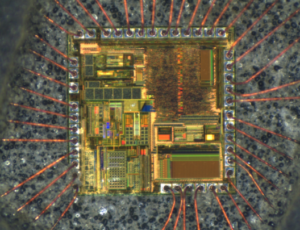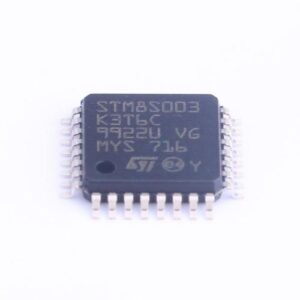Protective STM8S003K3 Microprocessor Software Readout needs to disable the tamper resistance system of MCU itself by unlock mcu stm8s003k3 security fuse bit and then recover flash program and eeprom data from stm8s003k3 cpu memory;

Clock controller
The clock controller distributes the system clock (fMASTER) coming from different oscillators to the core and the peripherals. It also manages clock gating for low power modes and ensures clock robustness.
Features
Clock prescaler: To get the best compromise between speed and current consumption the clock frequency to the CPU and peripherals can be adjusted by a programmable prescaler.
Safe clock switching: Clock sources can be changed safely on the fly in run mode through a configuration register. The clock signal is not switched until the new clock source is ready. The design guarantees glitch-free switching in order to copy stm32f103c8 flash memory content.
Clock management: To reduce power consumption, the clock controller can stop the clock to the core, individual peripherals or memory.

Master clock sources: Four different clock sources can be used to drive the master clock:
1-16 MHz high-speed external crystal (HSE)
Up to 16 MHz high-speed user-external clock (HSE user-ext)
16 MHz high-speed internal RC oscillator (HSI)
128 kHz low-speed internal RC (LSI)
Startup clock: After reset, the microcontroller restarts by default with an internal 2 MHz clock (HSI/8). The prescaler ratio and clock source can be changed by the application program as soon as the code execution starts from copy arm mcu stm32f105rct6 flash binary file.
Clock security system (CSS): This feature can be enabled by software. If an HSE clock failure occurs, the internal RC (16 MHz/8) is automatically selected by the CSS and an interrupt can optionally be generated.
Configurable main clock output (CCO): This outputs an external clock for use by the application.


